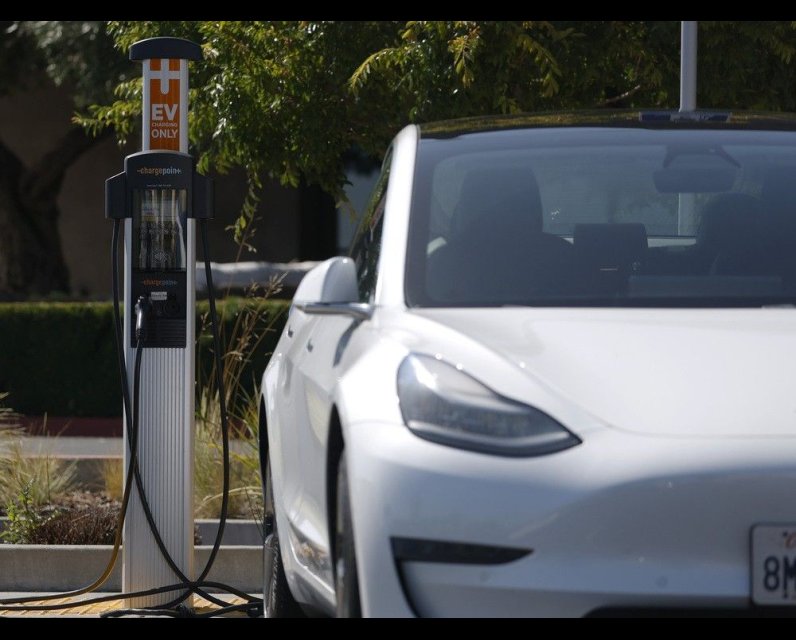Source Feed: National Post
Author: Stephanie Taylor
Publication Date: June 27, 2025 - 04:00
Electric vehicle mandate risks being next carbon tax without 'adjustments,' EV industry warns
June 27, 2025

OTTAWA — The head of a national association representing the electric transportation industry says the federal government, and provinces with a zero-emission vehicle sales mandate, should make “short-term adjustments” to their programs at the risk of the policy going the way of the now-cancelled consumer carbon tax.
Electric Mobility Canada President Daniel Breton’s comments come as auto-makers and others in the industry express a fresh round of concerns about the Liberals’ sales mandate, which has set a target of reaching 100-per-cent zero-emission vehicle sales by 2035, beginning with initial targets of hitting 60 per cent by 2030 and at least 20 per cent by 2026.
“We believe that B.C, Quebec, and the federal government should make short-term adjustments, because between now and 2030 we don’t know yet what’s going to happen south of the border. We don’t know yet what’s going to happen between Canada and the U.S.,” Breton told National Post in an interview Thursday.
“Lowering the targets between now and 2030 would be a reasonable path.”
With Conservative Leader Pierre Poilievre ratcheting up his efforts in demanding that the mandate be scrapped, arguing it removes “choice” from consumers, Breton, a former Quebec environment minister, says the risk of not making short-term adjustments at the federal level is that, “this is going to become a political hot potato.”
“Like the carbon tax was.”
The consumer carbon tax was a signature climate policy of the Liberals until March, when Prime Minister Mark Carney cancelled it, saying it had become “too divisive.” That followed a years-long campaign by Poilievre, who criss-crossed the country, promising to “axe the tax,” blaming it for forcing consumers to pay additional costs amid a cost-of-living crisis.
Breton, whose association represents 180 members in the electric transportation industry, including those who sell electric cars, says “we have to find a pathway” that will allow people and those in the traditional automotive industry to buy credits and “ease into this regulation.”
A credit system is at the heart of the federal policy, which the Liberals finalized in 2023 as part of their plan to reduce Canada’s overall greenhouse gas emissions, taking aim at the transportation sector, one of the top emitters.
The government says manufacturers can earn credits by either selling or making zero-emission vehicles, which Ottawa defines as either a battery-powered vehicle or a plug-in hybrid, or by purchasing credits from an electric vehicle maker, or putting money towards building out charging infrastructure.
Companies that fail to comply could face penalties under the Canadian Environmental Protection Act.
While manufacturers have long expressed opposition to the government mandating the sale of electric vehicles, Ford Canada CEO Bev Goodman recently called for the regulation to be scrapped in light of falling sales of these vehicles.
Back in March, Statistics Canada reported a nearly 45-per-cent drop in the sale of new zero-emission vehicles from the same month the year before. The agency reported in April that the sales of these vehicles fell to around 7.6 per cent.
Leading automotive associations have pointed to these decreases as evidence that hitting the 20 per cent sales target is unrealistic and creates additional burden on Canada’s auto-sector at a time when it is dealing with a trade war with the U.S., which under President Donald Trump has dropped the electrification goals introduced by former president Joe Biden.
A spokesperson for Ontario
Economic Development Minister Vic Fedeli called on the federal government to respond to the concerns from automakers.
“We are meeting regularly with auto companies, industry leaders, and workers as they navigate unprecedented global economic uncertainty,” wrote Jennifer Cunliffe.
“We need the federal government to do the same and address the concerns raised by industry partners about the impact that their net-zero vehicle mandates will have on investment, jobs, and supply chains.”
Breton attributes the “crash” in electric vehicle sales to the way the federal government suddenly ended the $5,000 rebate program for consumers in January, which it first introduced in 2019.
He said the way Ottawa did so was the “worst-case scenario” as compared to phasing it out more slowly and decreasing the value over time. What made matters worse, he says, was that at the same time, Quebec, which has its own zero-emission sales mandate, paused its rebate, which it has since reintroduced.
Since doing so, he says, Quebec dealers have been telling him sales have been going back up. A presentation to industry by B.C.’s Energy Ministry, which was
obtained by reporters
, also showed the province was considering changes to its own program amid falling sales.
The Liberals campaigned on reintroducing the federal rebate, which Environment Minister Julie Dabrusin’s office confirmed it was working on, but has not stipulated when it will be announced.
Breton said people are now waiting to see when the federal rebate will return before purchasing an electric vehicle.
“In the past two weeks, I’ve been getting phone calls from dealers that I know who told me, ‘well, (electric vehicle) sales are stopping again because people are waiting for the federal rebate to come back.'”
Breton says if it were up to him, the country would reach its overall target of having 100-per-cent new vehicle sales be zero-emission but 2030, “but it’s not me.”
He declined to speculate on what lower targets should be, saying he wants to have further discussions with the government and industry.
“We have to make sure that people see a reasonable pathway, meaning some kind of compromise between some traditional automakers’ issues or challenges,” he said.
“But also we need enough market certainty so that private companies will see that as more electric cars come to market, we will need more infrastructure, and then those companies want to invest in infrastructure charging.”
In a recent interview, Flavio Volpe, president of the Automotive Parts Manufacturing Association, said the government has the option of either abandoning its mandate or taking a look at the policy to “have them reflect reality.” He said the government will have to adjust its program.
“Sure, you should have stretch goals, but stretch goals might be
10-per-cent (by 2026) or you can stick to what you think your ultimate goal is, 100-per-cent by 2035, and the first compliance date out to 2028.”
-With files from
The Canadian Press
National Post
staylor@postmedia.com
Our website is the place for the latest breaking news, exclusive scoops, longreads and provocative commentary. Please bookmark nationalpost.com and sign up for our daily newsletter, Posted, here.
Florence Belzile and Delaney Baie Pridham scored first-half goals 10 minutes apart and the visiting Ottawa Rapid went on to defeat the Calgary Wild 3-0 in Northern Super League play at McMahon Stadium on Saturday.
July 19, 2025 - 19:59 | | CBC News - Ottawa
One person was taken to hospital following a single-vehicle collision at March Road and Halton Terrace on Saturday evening. Read More
July 19, 2025 - 19:41 | Doug Menary | Ottawa Citizen
The Toronto Blue Jays may have star power, but they've had contributions from unsung heroes this season.
July 19, 2025 - 19:11 | Globalnews Digital | Global News - Ottawa




Comments
Be the first to comment